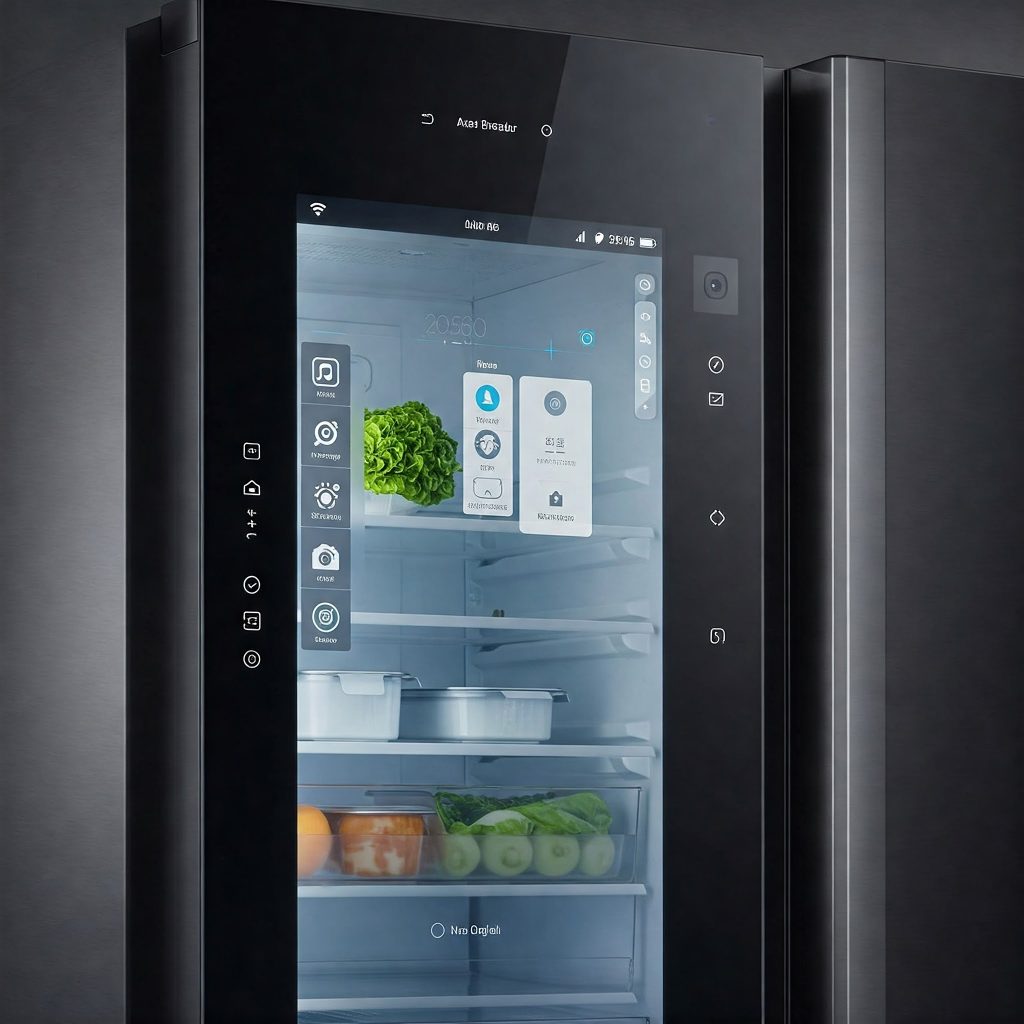The kitchen is rapidly transforming from a purely functional space into a connected, intelligent hub of the home. Smart kitchen technology is no longer a futuristic fantasy; it’s a reality, and it’s evolving at an incredible pace. As we look ahead to 2025, we’ll see even more sophisticated appliances, seamless integration, and a focus on making cooking easier, more efficient, and more enjoyable. This article explores the key trends and innovations in smart kitchen technology that will define the kitchens of the future.
1. The Rise of the Truly Smart Refrigerator
Smart refrigerators have been around for a while, but in 2025, they’ll be even smarter and more integrated:
- Internal Cameras and Inventory Management: See what’s inside your fridge from anywhere via a smartphone app. Advanced AI will automatically identify food items, track expiration dates, and even suggest recipes based on what you have on hand.
- Built-in Touchscreens and Entertainment: Large touchscreens will become even more prevalent, serving as a family hub for calendars, notes, recipes, and streaming entertainment.
- Voice Control Integration: Seamless integration with voice assistants like Alexa and Google Assistant for hands-free control.
- Automatic Grocery Ordering: The refrigerator will automatically reorder groceries when you’re running low on essential items.
- Temperature Zone Customization: More precise temperature control for different compartments, optimizing food preservation.
- Transparent Door:
Example Products (with Disclaimer):
- Disclaimer: The following product mentions are for illustrative purposes and do not constitute an endorsement.
- Samsung Family Hub Refrigerator
- LG InstaView Door-in-Door Refrigerator

2. Intelligent Ovens and Cooktops
Cooking becomes easier and more precise with smart ovens and cooktops:
- Guided Cooking Programs: Built-in recipes and step-by-step instructions that automatically adjust cooking time and temperature.
- Remote Control and Monitoring: Preheat your oven from your smartphone, monitor cooking progress, and receive alerts when your food is ready.
- Built-in Cameras: See your food cooking without opening the oven door, preventing heat loss.
- Automatic Shut-Off: Enhanced safety features to prevent accidents.
- Induction Cooktops with Smart Sensors: Precise temperature control and faster cooking times. Some models will even automatically adjust heat based on the pan size and contents.
- Self Cleaning Oven.
Example Products:
- GE Profile Smart Ovens
- Whirlpool Smart Slide-in Electric Range
3. Smart Dishwashers: Efficiency and Convenience
Smart dishwashers offer more than just remote control:
- Automatic Detergent Dispensing: The dishwasher dispenses the correct amount of detergent for each load.
- Leak Detection and Automatic Shut-Off: Prevent water damage.
- Energy and Water Usage Monitoring: Track your consumption and optimize for efficiency.
- Quiet Operation: Advanced noise reduction technology.
- Customizable Wash Cycles: Tailored cycles for different types of dishes and soil levels.
4. Smart Faucets and Sinks
Even the humble kitchen sink is getting a smart upgrade:
- Touchless Faucets: Motion-activated faucets for improved hygiene and convenience.
- Voice-Activated Faucets: Control water flow and temperature with voice commands.
- Water Filtration Systems with Monitoring: Smart filters that track usage and alert you when it’s time for a replacement.
- Smart Sinks with Integrated Accessories: Sinks with built-in cutting boards, colanders, and drying racks that maximize workspace.
5. Smart Lighting for Ambiance and Functionality
Smart lighting transforms the kitchen atmosphere and improves visibility:
- Voice-Controlled Lighting: Adjust brightness and color temperature with voice commands.
- Motion-Activated Under-Cabinet Lighting: Provides task lighting when you need it.
- Automated Lighting Schedules: Set lighting to turn on and off automatically at specific times.
- Color-Changing LED Strips: Add a pop of color or create different moods.
6. Voice Assistants and Smart Home Integration
Voice assistants are becoming the central control hub for the smart kitchen:
- Hands-Free Control: Control appliances, lighting, and other devices with voice commands.
- Recipe Assistance: Get step-by-step instructions and cooking tips.
- Grocery List Management: Add items to your grocery list with your voice.
- Smart Home Integration: Connect your kitchen appliances to other smart home devices, such as thermostats and security systems.
- Amazon Alexa
- Google Assistant
- Apple HomeKit
7. Smart Cooking Gadgets
Beyond the major appliances, a growing number of smart cooking gadgets are making their way into the kitchen:
- Smart Sous Vide Cookers: Precise temperature control for perfectly cooked food.
- Smart Slow Cookers: Control cooking time and temperature remotely.
- Smart Meat Thermometers: Monitor the internal temperature of your food and receive alerts when it’s done.
- Smart Scales: Accurate measurements for baking and portion control.
- Smart Coffee Makers: Schedule brewing, customize coffee strength, and control from your smartphone.
8. Smart Storage Solutions
Even kitchen storage is getting smarter:
- Pantries with Inventory Tracking: Sensors and cameras that track food inventory and alert you when items are running low.
- Smart Containers: Containers that track expiration dates and send notifications to your smartphone.
- Smart trash can:
9. Sustainability-Focused Technology
Smart kitchen technology is also helping to reduce waste and promote sustainability:
- Energy-Efficient Appliances: Reduce energy consumption and lower utility bills.
- Water-Saving Faucets and Dishwashers: Conserve water.
- Composting Systems: Smart composters that make it easier to recycle food waste.
- Smart recycle bin:
10. Emerging Technologies (Beyond 2025)
Looking even further ahead, we can expect to see even more innovative technologies:
- 3D Food Printers: Creating customized meals and snacks.
- Robotic Kitchen Assistants: Helping with tasks like chopping vegetables and stirring pots.
- Augmented Reality (AR) Cooking Apps: Overlaying instructions and information onto your real-world cooking environment.
- AI-Powered Meal Planning: Personalized meal recommendations based on dietary needs, preferences, and available ingredients.
Conclusion
Smart kitchen technology is rapidly transforming the way we cook, eat, and interact with our kitchens. By 2025, we can expect to see even more seamless integration, intuitive controls, and a focus on making the kitchen a more efficient, enjoyable, and sustainable space. Whether you’re a tech enthusiast or simply looking for ways to simplify your cooking routine, embracing smart kitchen technology is a smart move for the future.







Leave a Comment